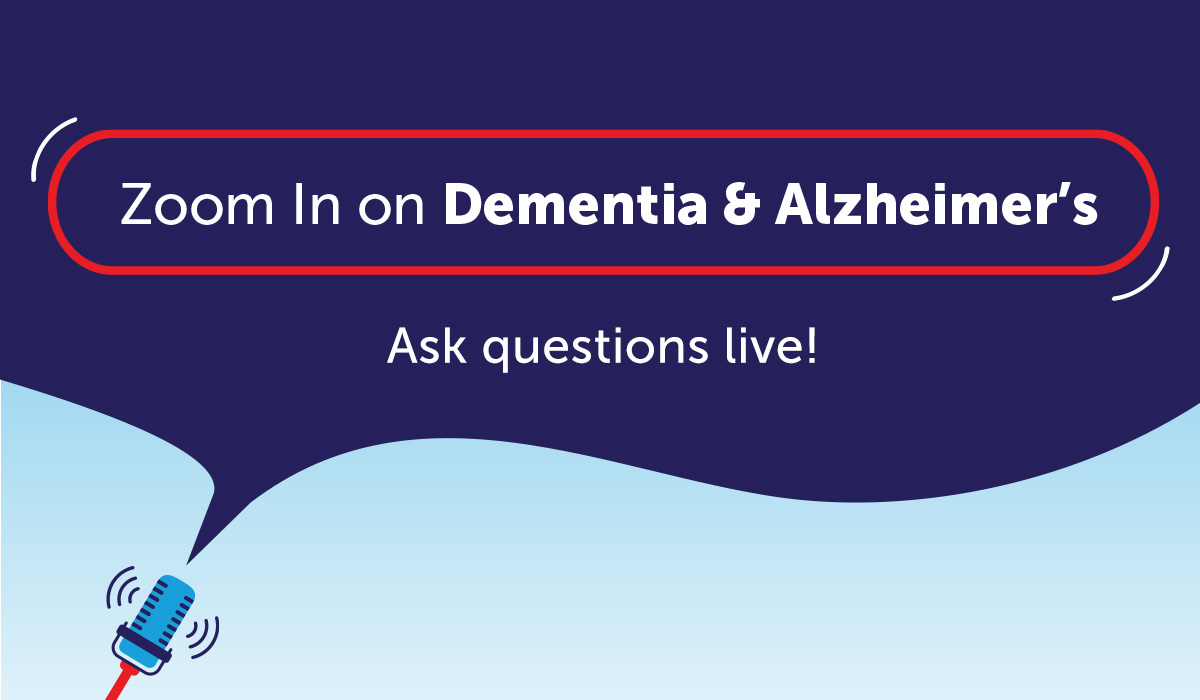Diagnosis & Testing
Many people experience mild forgetfulness or memory delays as part of the normal aging process. Someone with Alzheimer’s or another type of dementia, however, will find such symptoms becoming more frequent and severe.
If you or a loved one has been diagnosed with Alzheimer’s disease, you may be feeling overwhelmed. It will take time for the diagnosis to sink in and to prepare emotionally, financially, and practically for the road ahead. Continue reading for more information about what a diagnosis could mean for you or a loved one.

What to Expect
There are several next steps you can take after receiving an Alzheimer’s diagnosis for you or a loved one. Start with these three tips:
Gain Understanding
This is a difficult time, one where you may benefit most from learning more about Alzheimer’s disease and the resources available to you. A formal diagnosis and a firm understanding of this condition can empower your next steps.
Enjoy Life
It may take time to accept that you or a loved one have received a diagnosis of a progressive degenerative disease, and that’s okay. Reaching acceptance is one of several steps toward better preparing you and your family and finding a path forward. There will be time to continue enjoying life and pleasurable activities, even if it’s different, and to make important plans and decisions with loved ones.
Find Comfort
Gathering more information can help relieve your anxiety and stress. Learning, knowing what to expect, and sharing thoughts and information are powerful ways to cope. Lean on your loved ones and cultivate a support network of professionals and others in the Alzheimer’s community. Having conversations with others can help you feel more in control and better take advantage of current treatments and assistance.
Types of Testing
Physician evaluation is essential. If you suspect that you or a loved one has a memory problem, you should seek advice and a thorough evaluation by a physician with extensive knowledge, experience, and a focus on dementia and memory problems. It’s important to get medical attention as early as possible.
How is Alzheimer's disease diagnosed?
Although it can be difficult to diagnose Alzheimer’s disease, physicians can correctly diagnose the condition (~90% of cases) based on:
- Recent history of mental and behavioral symptoms
- Physical exam, imaging, and laboratory tests
- Neuropsychological test, if needed, to identify specific problems in mental function and behavior
What is a Neuropsychological Test?
These tests assist the physician in diagnosing Alzheimer’s by identifying behavioral and mental symptoms associated with brain injury or abnormal brain function. Usually, physicians start with a brief screening tool such as the Mini-Mental Status Examination (MMSE) to help confirm that the individual is experiencing problems with intellectual functions.
The MMSE includes tests of:
- Attention
- Language
- Mathematical calculation
- Memory
Other Tests
For people with mild intellectual deficits, more tests may be needed to determine whether the patient is simply showing signs of advanced age or is developing Alzheimer’s disease. The patient may be referred to a neuropsychologist, who can administer several tests to identify more specific problems.
Ready to talk to a doctor? Check out our conversation guide.

Confused by medical lingo?
Were you or a loved one recently diagnosed with Alzheimer’s disease but feel lost when trying to decipher the diagnosis given by your physician? Use our disease glossary to learn more about the terms you’ve been hearing.
There is Hope
Alzheimer’s Disease Research, a BrightFocus Foundation program, is driving innovative research around the world to end Alzheimer’s. We’ve funded the boldest research and “what-if” ideas to get us closer to cures, resulting in the novel treatments and diagnostic tools in use today.
Search for an Alzheimer's Clinical Trial
Clinical trials are crucial to advancing the most effective medical approaches. Today’s studies will lead to new standards of care in the future.
Explore Research Centers
One option to explore is whether there is an Alzheimer’s Disease Research Center in your state. These centers, funded by the National Institute on Aging, provide extensive research on Alzheimer’s.

Resources
Recent Resources & Information

Zoom In on Dementia & Alzheimer's
New Technologies for Early Detection of Alzheimer’s
What new technologies for diagnosing cognitive disorders are on the horizon? Join Dr. Michael Weiner, a leading expert in neuroimaging and biomarkers, as he explores advancements in digital and voice assessments, MRI, PET scans, and blood-based tests.

Zoom In on Dementia & Alzheimer's
BIO-HERMES-002: Innovative Study to Advance Precise Alzheimer’s Diagnosis
Learn about the Bio-Hermes-002 study exploring blood and digital biomarkers for predicting Alzheimer’s pathology. Discover accessible detection methods and treatment eligibility.

Downloadable Resource
Understanding Alzheimer’s Disease
Alzheimer’s disease affects people’s memories, but it involves far more than simple forgetfulness. Learn more about this devastating disease.

Zoom In on Dementia & Alzheimer's
Blood Tests for Alzheimer’s Disease: An Overview
Join us to learn the basics of what blood biomarkers are, how they work, and why they’re considered a game-changer in Alzheimer’s research and clinical care.

Zoom In on Dementia & Alzheimer's
How Is Dementia Diagnosed?
Alzheimer’s expert Dr. David Holtzman shares insights on the latest diagnostic methods, when and how to seek a diagnosis, and how to navigate the process.

Zoom In on Dementia & Alzheimer's
Frontotemporal Dementia: Diagnosis, Trials & Treatment
Scientists are rapidly gaining knowledge about the detection, diagnosis and treatment of FTD. Find the latest information and clinical trials for FTD.



